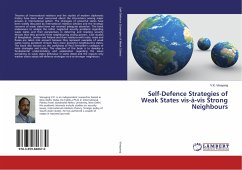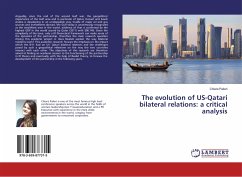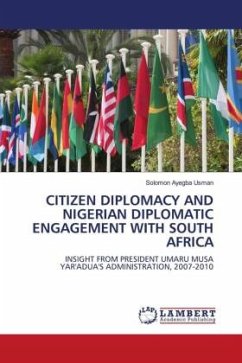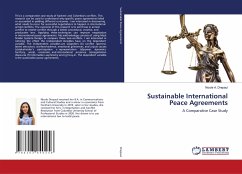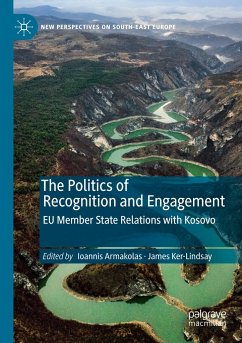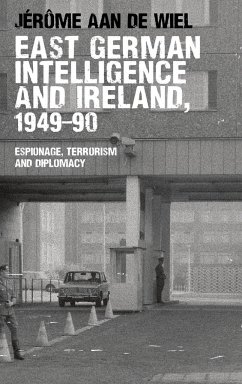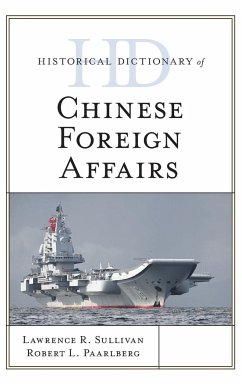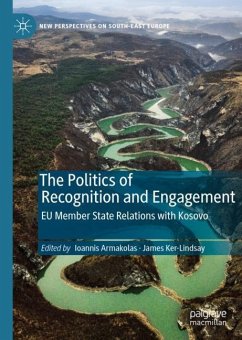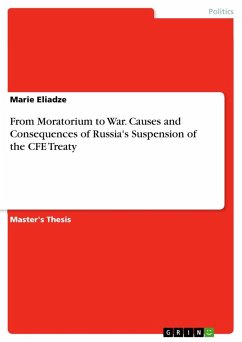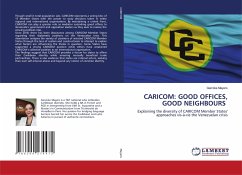
CARICOM: GOOD OFFICES, GOOD NEIGHBOURS
Explaining the diversity of CARICOM Member States' approaches vis-à-vis the Venezuelan crisis
Versandkostenfrei!
Versandfertig in 6-10 Tagen
25,99 €
inkl. MwSt.

PAYBACK Punkte
13 °P sammeln!
Though small in total population size, CARICOM represents a voting bloc of 15 Member States with the power to sway decisions taken in wider regional and international organisations. By maintaining a united front, CARICOM can play a greater role as mediator extending good offices to Venezuela's government and opposition leaders as they seek to resolve the ensuing political crisis. Since 2018, there has been dissonance among CARICOM Member States regarding their diplomatic positions on the Venezuelan crisis. This dissertation analyses the variety of positions of selected CARICOM Member States th...
Though small in total population size, CARICOM represents a voting bloc of 15 Member States with the power to sway decisions taken in wider regional and international organisations. By maintaining a united front, CARICOM can play a greater role as mediator extending good offices to Venezuela's government and opposition leaders as they seek to resolve the ensuing political crisis. Since 2018, there has been dissonance among CARICOM Member States regarding their diplomatic positions on the Venezuelan crisis. This dissertation analyses the variety of positions of selected CARICOM Member States through the lens of realism and constructivism to attempt to explain what factors are influencing the States in question. Some States have supported a strong CARICOM position while others have weakened CARICOM's collective position as an international organisation. The findings suggest that CARICOM provides a forum for states to affirm their Caribbean identity while ensuring mutually beneficial trade partnerships. There is also evidence that states are rational actors, seeking their own self-interest above and beyond any notion of common identity.



